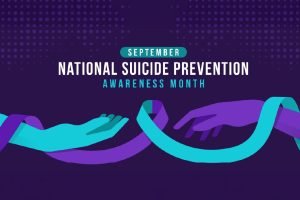Ah, siblings. As kids, maybe you shared toys, built elaborate pillow-and-blanket forts in the living room, and banded together against your parents’ perceived tyrannical rule. With age, you became sounding boards and confidants.
In fact, just thinking about your brother or sister has you feeling all the feels, right?
If this describes your sibling relationship, count yourself lucky. Not all brothers and sisters are built-in best friends. In fact, many people cut ties with family members, and some are specifically estranged from a sibling.
Identifying your siblings’ toxic patterns
No, we aren’t just talking about the occasional ribbing or yelling match, but toxic patterns of behavior that cause upheaval in your life.
“These patterns can include bullying, ridiculing, manipulating, dismissing, ignoring, and even being physically intimidating or abusive,” explains Dr. Jamie, a trauma-certified therapist. “If you feel fearful or on guard, or as if you’re often the target of that sibling’s anger or the butt of their jokes, you’re likely responding to toxic behavior.”
One need only look at the relationship between Princes William and Harry — rife with accusations of physical attacks, planted media stories, and more — to see what some of these patterns might look like played out in real life, and how they can wreak havoc on a sibling relationship.
Having bad blood with your siblings not only hurts, but it can also mean missing out on the positive effects sisters and brothers can have on everything from academic achievement to empathy to mental health.
How do toxic sibling relationships begin?
“Sibling relationships fall into toxic behavior patterns for any number of reasons: traumatic experiences, mental health challenges, familial or environmental conditioning, unresolved emotions, lack of empathy, and low self-esteem,” says Dr. Jamie.
“I hate to put so much pressure on families,” adds Dr. Jamie “but that’s where you learn how to relate to people and interact with one another.”
Noting that people are often products of their environment, Dr. Jamie believes that toxic behaviors often emerge when a child’s needs aren’t met by parents who might be controlling, neglectful, inattentive or openly favor one child over others.
“Parents’ behavior may leave children competing for parents’ time, attention and ultimately, love.” Within these interactions, Dr.Jamie says, “Children have learned that there’s only a certain acceptable version of themselves, and that version gets their needs met.”
For siblings, Dr. Jamie says “Toxic behaviors can be especially traumatic because of the bonds of shared emotional and developmental experiences that siblings should naturally have.” Unfortunately, when those shared experiences are poisonous, they can lead to toxic or negative relationship patterns.
It’s worth noting, however, that people who show toxic behavior aren’t always aware of their toxicity — or how their behavior affects those around them — and aren’t necessarily doing it on purpose.
Signs you’re dealing with a toxic sibling.
If your relationship with your sibling(s) is filled with an excess of family drama, it can be harder to reconcile. It can also be a sign of toxicity. Here are five unhealthy patterns that need to be in your awareness:.
1. They’re overly critical.
According to Dr. Jamie, “children that live with criticism learn to condemn, and they start by criticizing their siblings.” If your parents doled out biting remarks the way Oprah handed out gifts on The Oprah Winfrey Show, then that approach may also become second nature to your sibling.
No one really knows you like a sibling you’ve grown up with, which means they know exactly which buttons to press to rile you up and unleash all your fury or insecurity. So when they’re constantly picking you apart, pointing out your what they determine to be your flaws, and hurling sharp criticisms at you, it really stings.
2. They’re manipulative.
At its root, manipulation is an attempt to control, and your sibling can use all kinds of manipulation tactics to get their way. Perhaps they frequently play the victim, and they can only see their own hardships.
Maybe they frame a particular incident that makes them look more favorable. It could also be scenario-specific. For instance, when you travel or go out, they guilt you into putting your credit card down for the bill because you make more money.
3. They’re dishonest.
Consider dishonesty as an offshoot of manipulation because your sibling is lying to get their way. Yes, some deceit is natural when you’re young — like fibbing to say they didn’t eat the candy that they clearly did or that they were at the library after school and not with their boyfriend or girlfriend.
But there’s a line that, when crossed, is cause for concern and can be “indicative of a child who grew up in a home where their truth really didn’t have space to breathe,” Dr. Jamie says. Here, “The person learns that in order to be accepted, loved by the family, they have to tell the family what they want to hear,” and thus are never working from a place of honesty.
4. They’re repeat offenders.
It’s one thing to identify toxic behaviors. It’s another if you’ve ID’d said behaviors and brought them to your sibling’s attention and they continue down the same path.
If the latter is true, that’s a definite red flag. For example, maybe you and your sibling have bimonthly dinner plans, and every time you meet up, they drink copious amounts of alcohol and then berate you.
“Now if it happens one time, you can say, ‘Oh, that person’s having a hard time. They drank too much. They didn’t realize it,’” Dr. Jamie says. “But if that behavior continues to happen, then we know apart from alcoholism, they’re engaging in verbally abusive behavior with their siblings, and using alcohol as a kind of scapegoat.”
5. They’re overly competitive.
Toxicity in sibling relationships can manifest as jealousy and competition and can be rooted in feelings that a parent prefers one child over another. Those relationships can be rife with resentment and prevent strong sibling bonds from being deeloped. They can also pit you against your siblings as you work to outshine them, or vice versa, to garner the recognition you feel you’re missing.
Tips for dealing with and healing from toxic siblings.
Dealing with a toxic sibling can be exhausting. What’s worse, if their behavior isn’t addressed, your self-esteem and mental health can suffer. It could also cause trouble in other relationships as well, including romantic and professional ones. But there are ways to deal with a toxic sibling that can help minimize their negative effects on you and help keep your mental health intact.
1. Express yourself.
If you’d like to improve a toxic sibling relationship, it’s important to create a safe space to have a discussion about your desire to improve your bond and focus on positive communication and conflict resolution skills. Dr. Jamie says that it’s important to talk about how you feel — to emphasize the impact of their behavior. He suggests offering up just the facts without embellishment or opinion, using phrasing such as:
- “I’m disappointed that…”
- “I’m frustrated by…”
- “It makes me uncomfortable when you…”
Believe it or not, this could be enlightening to your sibling.
“Sometimes people are stuck in behavioral patterns that don’t feel toxic to them because they’ve used them as survival tactics,” Dr. Jamie says. And unless it’s brought to their attention, they don’t know they need to change. Realize, though, that your sibling may not acknowledge or respond to you the way you expect or want.
2. Set boundaries.
Be clear about what you will and won’t do — including how you will and won’t respond to cues. This way, if your sibling is exhibiting toxic traits, the boundaries help keep the toxicity at arm’s length, but only if you enforce them.
3. Seek professional help.
These days, if you have the means, a therapist is a must, as they can help you deal with all of life’s difficult moments. As far as toxic siblings go, an individual therapist can help support you as you navigate the challenges of a toxic relationship.
And if others in the family are willing, a family therapist can help all of you address and work to overcome systemic issues that contribute to a toxic situation, according to Dr. Jamie.
4. Know that it’s okay to walk away.
Ultimately, it’s not necessarily your job to fix your toxic sibling.
Prioritizing yourself, however, is key, and sometimes that means knowing when to walk away. According to Dr. Jamie, you have to recognize “when the cost of sustaining a relationship with a toxic person is more than you are willing to pay.”







